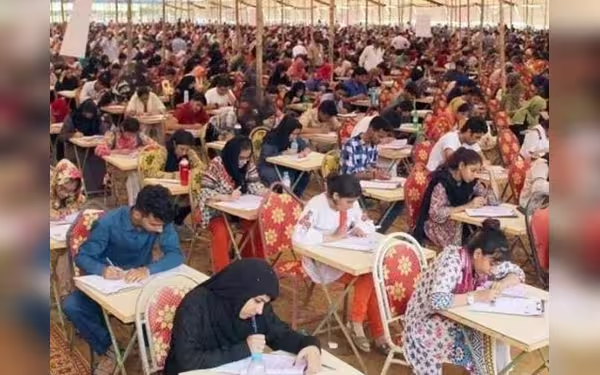Saturday, November 16, 2024 08:55 PM
IHC Prohibits SZABU From Announcing MDCAT Results
- IHC bars SZABU from releasing MDCAT results.
- Hearing scheduled for September 26 regarding MDCAT.
- Court emphasizes accountability in medical education.
 Image Credits: urdupoint
Image Credits: urdupointIHC has barred SZABU from announcing MDCAT results, raising concerns over the examination process and accountability in medical education.
In a significant development concerning medical education in Pakistan, the Islamabad High Court (IHC) has intervened in the announcement of the results for the Medical and Dental College Admission Test (MDCAT). This decision comes as a response to a petition filed against the Shaheed Zulfiqar Ali Bhutto University (SZABU), which is responsible for conducting the MDCAT exam. The court's ruling has raised questions about the integrity and transparency of the examination process, which is crucial for aspiring medical students.
The IHC, led by Justice Arbab Muhammad Tahir, issued a clear directive prohibiting SZABU from releasing the MDCAT results until further notice. This order was formalized in a three-page document that outlined the court's concerns regarding the examination process. The court also took the step of notifying the Ministry of Health and other relevant parties, scheduling a hearing for September 26 to discuss the matter further.
During the proceedings, it was revealed that as of 4:30 PM on the day of the ruling, SZABU had not yet announced the results of the MDCAT. This delay has left many students and their families in a state of uncertainty, as the MDCAT results are pivotal for students seeking admission to medical and dental colleges across the country.
The court's decision underscores the importance of accountability in educational institutions, especially those that play a vital role in shaping the future of healthcare professionals in Pakistan. The MDCAT is not just an examination; it is a gateway for many students aspiring to serve in the medical field. Therefore, ensuring a fair and transparent process is essential for maintaining public trust in the educational system.
As the hearing approaches, students and stakeholders are keenly awaiting further developments. The outcome of this case could have lasting implications for the future of medical education in Pakistan. It serves as a reminder of the critical need for oversight and integrity in academic assessments, which ultimately shape the healthcare landscape of the nation.













